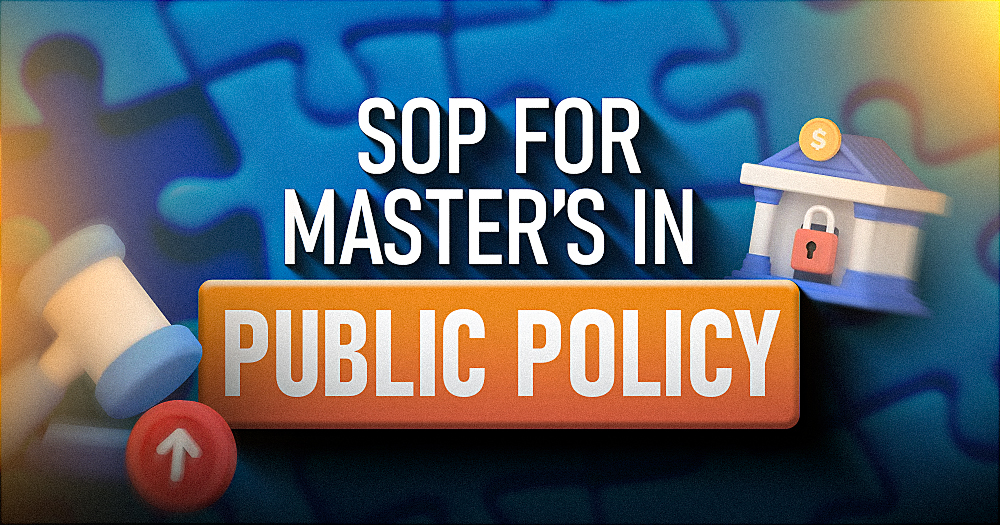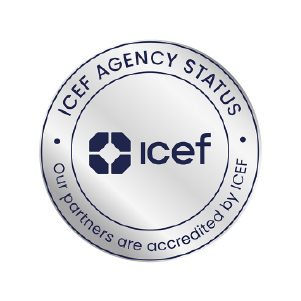Applying to New Zealand Universities: Step-by-Step Guide for International Students
New Zealand is one of the prime study-abroad destinations to pursue any higher education. The country is home to reputed universities that offer multiple academic benefits, such as a broader range of course options, access to well-equipped educational facilities, the opportunity to engage with industry experts to enhance the learning experience, and many more. Due to this, multiple international students globally submit university applications to secure admission to prestigious universities in New Zealand.
However, to study at the best universities in New Zealand, the admission process should be conducted efficiently. So, if you’re looking to apply to the top universities in New Zealand, follow the detailed admission process listed below.
How to Apply to the Top Universities in New Zealand?
To successfully study in New Zealand, cracking the admission process of your chosen university is essential. Keep in mind that every academic institution will have its own set of admission requirements. Failure to cater to the same will result in your application being put on hold or, worse, rejected. You can avoid such mishaps by following the admission process listed below.
But before applying to any universities in New Zealand, keep the following things in mind:
- Analyse which course you wish to pursue in New Zealand. Based on your academic interest, choose a course accordingly. Ensure you also consider which intake allows you to pursue your chosen course.
- Next, make a list of universities in New Zealand that offer your desired course. Ensure the university also provides a range of degree programs regarding your course. This ensures that you will have the opportunity to specialize in your course in the future when required.
- When you choose a course, there will be certain topics that you wish to pursue. Check the course structure at your chosen university to ensure all those topics are taught accordingly.
- Check the teaching style of the university as well. In New Zealand, interactive learning is one of the popular teaching methods tutors use to educate students. Due to this, learning becomes fun, and you will remember concepts taught even after classroom hours.
- Lastly, ensure the university offers valuable academic offerings to support your course learning experience. This could include well-equipped laboratories, research centres, workshops, seminars, and engagement with guest speakers.
Once you have selected your choice of university to pursue your higher studies, move forward towards catering to the below-mentioned admission process.
- Check the entry requirements
You should visit the chosen university’s official website. Head to the course you wish to pursue and select the entry requirements. Based on the course chosen, the entry requirements will vary accordingly. For instance, if you want to pursue an engineering course, you may be asked to score well in specific subjects such as calculus, physics, etc.
Most universities in New Zealand also follow a standard entry requirement such as:
- Submission of International Baccalaureate Diploma (when applying for an undergraduate degree), a bachelor’s degree (when applying for a Master’s degree), and a bachelor’s and master’s degree (when applying for a doctorate program).
- Submission of entrance exam scores such as IELTS, PTE, GRE, GMAT, etc. This varies accordingly.
- Submission of essential documents such as work experience, statement of purpose, letters of recommendation and more.
Ensure you cater to the admission requirements as per the course and university chosen.
- Submit a meaningful statement of purpose
Do you know how you can impress the admission committee at your chosen university? By creating an impressive statement of purpose (SOP). It is advised that students should create the SOP by themselves. The purpose of the SOP is to help the admission committee understand you better, both academically and personally, and to convince them why you’re a worthy candidate to secure the admit.
Your statement of purpose should be unique and state your academic and career goals. Ensure you mention the following:
- Your academic journey throughout the years
- Your accomplishments and achievements
- Shine the light towards your extra-curricular activities
- If you have a gap in your academic journey, mention the reason for the same
- State clearly why you wish to pursue your chosen course. What are your career aspirations, and how this course can help you achieve them?
An SOP should have a personal touch as it is a vital document to be considered when analysing your application.
- Attach a well-drafted letter of recommendation
Most New Zealand universities also ask for a letter of recommendation (LOR) from student applicants like you. A LOR is a document that helps the admission committee at your selected university learn more about you (similar to the purpose of the SOP), except this will be from another person’s point of view.
LORs should be drafted by an individual who can share insights about your academic or career journey. This could vary accordingly. For instance, if you’re in high school, your LOR should be drafted by your tutor, who has taught you and is better aware of your academic performance. If you’re working in an organization, then your LOR should be drafted by your manager or team lead, who can give better insights about your work performance and how pursuing the chosen course can benefit you career-wise.
LORs are a vital document that can make or break your application. The former has a set format to follow; thus, ensure your chosen recommender adheres to it and meaningfully lists your academic or career performance, extra-curricular activities and why they feel you should receive the acceptance letter from your chosen university.
- Analyse and prepare for entrance examinations
You will be required to attend certain entrance examinations and score well. The purpose of writing this exam is to help the admission committee analyse your skills in a subject and be convinced that you are a suitable candidate to pursue your chosen course.
The entrance examination requirements can vary accordingly, such as:
- If you’re pursuing a graduate business course program such as an MBA, you are required to write a GMAT or GRE.
- If you’re pursuing a course taught in English, you must write an English-language proficiency test such as IELTS, TOEFL, PTE, etc.
- If you’re pursuing a medical course, you must write NEET and UCAT ANZ Test.
Scoring well in these entrance exams is also crucial as it is also one of the determining factors for your application. Every test has a set score range which you should achieve. The same can be found on the admission page of your chosen university. For instance, if you are writing an IELTS exam to pursue an undergraduate degree program in New Zealand, a score of 6.0 is required.
- Collect all required documents
You are required to attach and submit a set of important documents to complete your university application process. Failure to attach even one can result in your application being imperilled. Here is the list of documents that need to be submitted:
- Previous academic transcripts
- Proof of entrance exam scores (GRE/GMAT/SAT)
- Proof of English language proficiency test scores (IELTS/TOEFL/PTE)
- Statement of Purpose
- Letters of Recommendation
- CV/Resume
- Proof of Work Experience
- Passport sized-photographs
- Certificates of Extra-Curricular activities
- Valid passport
- Proof of sufficient funds
- Copy of Scholarship application
- Proof of any sponsor catering to financial expenses
- Proof of application fee payment
While the above is the standard requirement when submitting documents to New Zealand universities, it is also advised to cross-check your chosen university’s admission page to understand if any other additional documents are required to be submitted.
- Pay the application fee
A few New Zealand universities ask international students to pay an application fee. These fees can go up to NZD 75/one-time payment. If you’re chosen university enquires for the same, ensure you make the payment and attach the proof along with your application process.
- Be aware of application deadlines
Application deadlines should be treated with utmost priority. Ensure you have cleared all your entrance examinations and collected all the required documents needed when submitting your application to your chosen university. Universities in New Zealand are strict about the application deadlines; thus, ensure your application process is conducted 6 months to 1 year in advance.
- Apply for a scholarship (if applicable)
When financing your education in New Zealand, there are multiple options to choose from, such as applying for an education loan or having a sponsor who can fund you financially. One common funding medium that has grown popular amongst international students is applying for scholarships.
New Zealand offers scholarship opportunities at any degree level chosen. There is the option of full funding and partial funding in these scholarship offerings. This funding medium helps support the students financially by covering common expenses such as tuition fees, living costs, travel costs or equivalent.
The process to apply for a scholarship will vary from one university to another. Ensure you complete the scholarship application on time to avoid missing out on good funding opportunities.
- Attend any interviews scheduled
Upon submission of your application, there could be instances where your chosen university would schedule an academic interview. The interview aims to help the admission committee cross-verify the information you shared and ask any related questions. Ensure you attend this interview prepared and be on time.
- Patiently wait for the results
It can take up to 4 weeks to hear back from your applied universities in New Zealand. The timeline will vary accordingly. You will receive your results via email, and once you have been accepted, start applying for the New Zealand study visa and prepare a list of the pre-arrival and post-arrival actions that need to be conducted.
Conclusion
One common reason a few international students face an application rejection from universities in New Zealand is failure to cater to the admission process. You can now avoid this by following the detailed admission process shared above. Studying in New Zealand will equip you with the knowledge and skills needed to fulfil your career aspirations. Furthermore, if you wish to learn more about New Zealand’s study abroad space or have queries related to their university admission process, book a free 1-1 counselling session with our expert counsellors today!









































